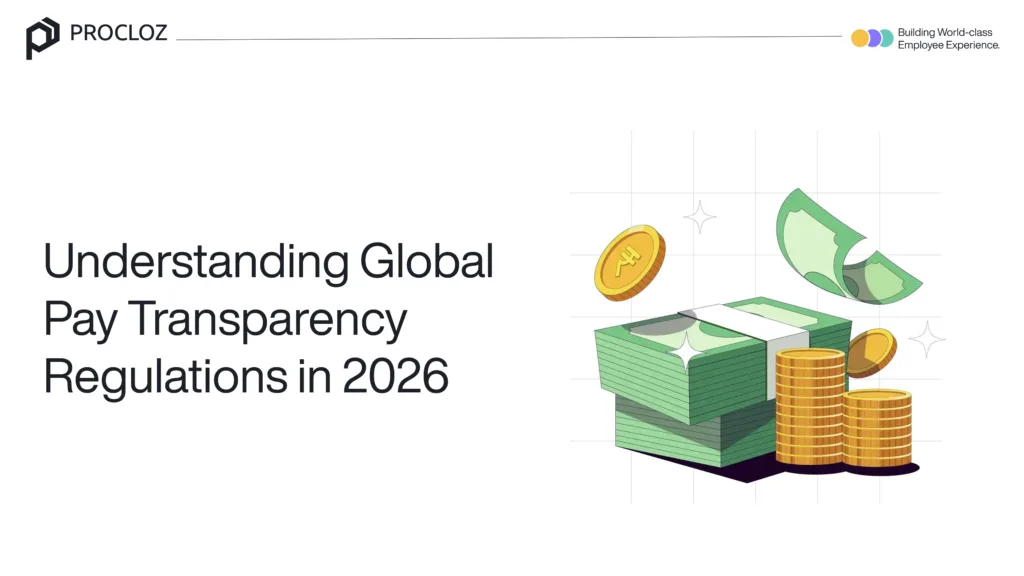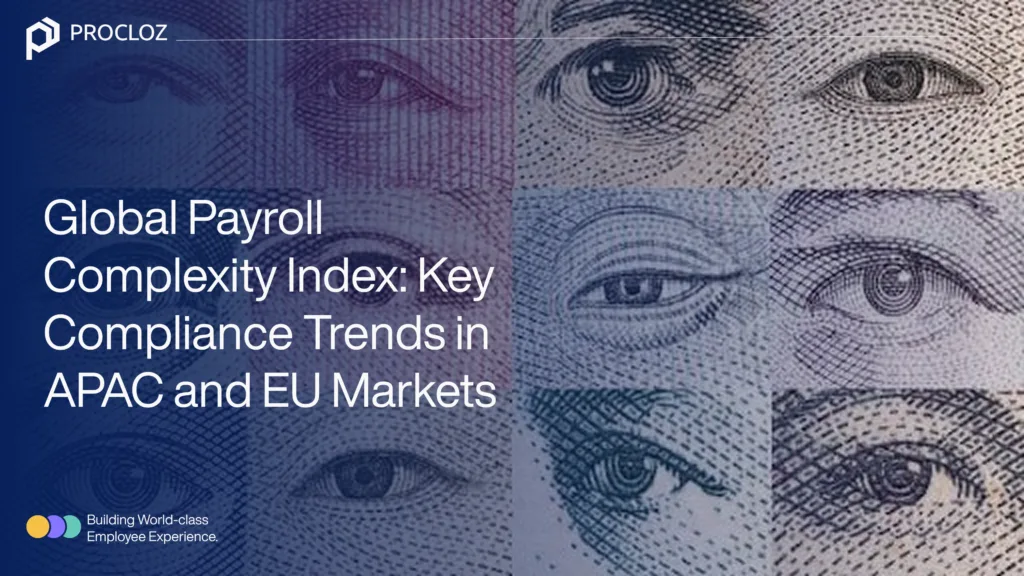You have launched your dream startup in Singapore – funding secured, a stellar team onboard, and growth projections soaring. But, out of nowhere, an MOM (Ministry of Manpower) audit exposes payroll miscalculations, unpaid levies, and CPF contribution errors. Suddenly, your thriving venture faces crippling fines, legal scrutiny, and reputational damage that could derail everything you’ve built.
Payroll compliance isn’t just another administrative checkbox; it’s a high-stakes operational necessity. Singapore’s regulatory landscape is stringent, and startups – often operating with lean teams and aggressive growth strategies – are at heightened risk of compliance pitfalls.
This guide delves into the world of payroll compliance for Singapore startups, breaking down essential laws, tax structures, and best practices to help you understand how to create a payroll system that is both resilient and compliant.
Singapore’s Payroll Compliance: The Rulebook Every Startup Must Follow
1. Employment Laws & Regulations
- Employment Act: Covers work hours, leave, and termination (excludes seafarers, domestic workers, civil servants).
- Work Hours & Overtime: Over 44 hours/week = 1.5x overtime pay (for salaries below SGD 2,600/month).
- Rest Days & Leave: At least 1 rest day/week and minimum 7 days annual leave (increases with tenure).
2. Work Passes & Hiring Foreign Talent
- Employment Pass (EP): For professionals earning SGD 5,000+ per month.
- S Pass: For mid-skilled workers earning SGD 3,150+ per month.
- Work Permit: For semi-skilled workers in construction, manufacturing, and related sectors.
- Fair Consideration Framework (FCF): Employers must prioritise local hiring before applying for EPs.
3. Payroll Regulations & Compliance
- Salary Payments: Monthly or bi-monthly, with overtime paid within 14 days.
- Payslips: Mandatory with detailed salary breakdowns.
4. Mandatory Contributions & Levies
- Central Provident Fund (CPF):
Employer – 17%, Employee: 20% (for employees under 55).
Covers – Retirement, healthcare, and housing.
- Skills Development Levy (SDL): 0.25% of gross wages (capped at SGD 11.25) for workforce training.
- Foreign Worker Levy (FWL): Mandatory levy for hiring non-local employees.
- Self-Help Group (SHG) Contributions: Voluntary for community support.
5. Regulatory Bodies & Compliance
- Ministry of Manpower (MOM): Ensures compliance with salary disbursement timelines and statutory benefits under the Employment Act.
- Inland Revenue Authority of Singapore (IRAS): Handles taxation compliance, including Monthly Tax Deduction (MTD) and Form IR8A reporting.
On a positive note, for Singapore startups planning international expansion, integrating global payroll services ensures multi-country compliance, tax management, and currency conversions. For instance, in case of Singapore startups expanding into Australia, understanding payroll services in Australia is crucial, including distinct tax structures, Superannuation (SG), and Fair Work Act compliance while ensuring alignment with Singapore’s reporting standards.
Payroll Automation: Your Startup’s Secret Weapon
If you’re still wondering how to create a payroll system that ensures full compliance while reducing manual effort, start by selecting a cloud-based payroll solution that automates CPF contributions, tax deductions, and salary disbursements. Key features to look for include:
- Auto-Calculation of CPF, SDL, and Taxes: Payroll software that integrates CPF and IRAS regulations, automatically computes deductions and contributions.
- Real-Time Data Synchronisation: API-driven payroll systems sync real-time salary, tax, and leave data with accounting platforms.
- Bank Integration & Salary Disbursement: Systems with automated GIRO (General Interbank Recurring Order) transfers ensure error-free and timely salary payments.
- Multi-Currency Payroll Handling: For startups with remote teams, cross-border payroll solutions eliminate the hassle of FX (foreign exchange) calculations and compliance mismatches.
Startups of Singapore, might also follow best practices for setting bi-monthly payroll cutoffs, to ensure timely salary processing, CPF contributions, and tax compliance without last-minute payroll bottlenecks.
E-Tax Filing: How to Stay on IRAS’ Good Side
IRAS requires employers to file employment income data electronically via Auto-Inclusion Scheme (AIS). Manual tax reporting is a relic of the past. Modern payroll platforms offer direct integration with IRAS for automated e-filing of Form IR8A, Appendix 8A, Appendix 8B, and Form IR8S.
Key tech advantages:
- Seamless API Integration: Payroll software connects directly to IRAS, eliminating human intervention in tax filings.
- Automated Tax Calculation: Built-in compliance checks ensure accurate deduction of Monthly Tax Deduction (MTD) amounts.
Remember, E-filing isn’t just about compliance – it’s a massive time-saver that eliminates the risk of penalties due to reporting errors.
Blockchain: The Ultimate Shield for Payroll Security
Payroll data is a goldmine for cybercriminals, containing sensitive salary details, bank accounts, and tax information. Startups can enhance data security through blockchain-based payroll systems, ensuring tamper-proof payroll records and decentralised verification.
- Immutable Payroll Records: Blockchain-based ledgers prevent unauthorised changes to payroll history.
- Smart Contracts for Payroll Automation: Payments can be executed via smart contracts, ensuring salaries are disbursed only when compliance conditions are met.
- Zero-Knowledge Proofs (ZKP): These enable secure payroll audits without exposing confidential employee data.
Payroll Meets Workforce Management
Payroll isn’t just about numbers – it’s deeply tied to employee work hours, leaves, and benefits. A well-integrated workforce management solution plays a vital role in the ‘how to create a payroll system’ dilemma. This accurately tracks employee hours, leave balances, and benefits, ensuring precise salary calculations. Integrated workforce management solutions offer a compliance-centric approach by:
- Automating Work Hours & Overtime Calculations: Systems track attendance via biometric authentication, preventing payroll fraud.
- Linking Leave Management to Payroll: Leave deductions and payouts are auto-synced with payroll records, reducing miscalculations.
- Statutory Reporting Dashboards: AI-driven analytics offer real-time compliance snapshots for CPF (Central Provident Fund), SDL (Skills Development Levy), and MOM (Ministry of Manpower) regulations.
Cross-Border Payroll: How to Pay Your Global Team Without Losing Sleep
Many Singapore startups employ remote teams or foreign workers, requiring compliance with international tax treaties and Singapore’s Foreign Worker Levy (FWL).
Using Employer of Record (EOR) solutions enable startups to:
- Ensure Global Tax Compliance: EORs manage multi-country payroll tax deductions and filings.
- Automate FWL Payments: Integrated payroll systems calculate levies dynamically based on employee permits.
- Handle Multi-Currency Disbursements: Payments in different currencies sync with Singapore’s payroll ecosystem.
On a positive note, utilizing Employer of Record services in Singapore allows startups to hire and pay international employees compliantly, without setting up local entities or navigating complex labour laws beyond Singapore’s regulatory framework.
Payroll Audits & Data Analytics: Your Compliance Watchdog
Payroll audits are essential for spotting discrepancies before IRAS or CPF inspections. Modern payroll systems offer:
- AI-Powered Data Reconciliation: Startups can still use predictive analytics to flag payroll anomalies.
- Automated Audit Trails: Digital records ensure payroll transparency and streamline tax audits.
- Real-Time Compliance Dashboards: CFOs get instant insights into compliance metrics via visual dashboards.
Payroll Compliance Is No Longer Optional – It’s Digital
Singapore’s regulatory framework is evolving, and manual payroll management is no longer viable. For startups aiming to scale efficiently, knowing how to create a payroll system that is both compliant and tech-driven is a game-changer.
The future of payroll is digital, and for startups, embracing technology isn’t optional – it’s survival. With the right tools in place, payroll compliance transforms from a tedious burden into a streamlined, error-free process that supports business growth, in no time!




